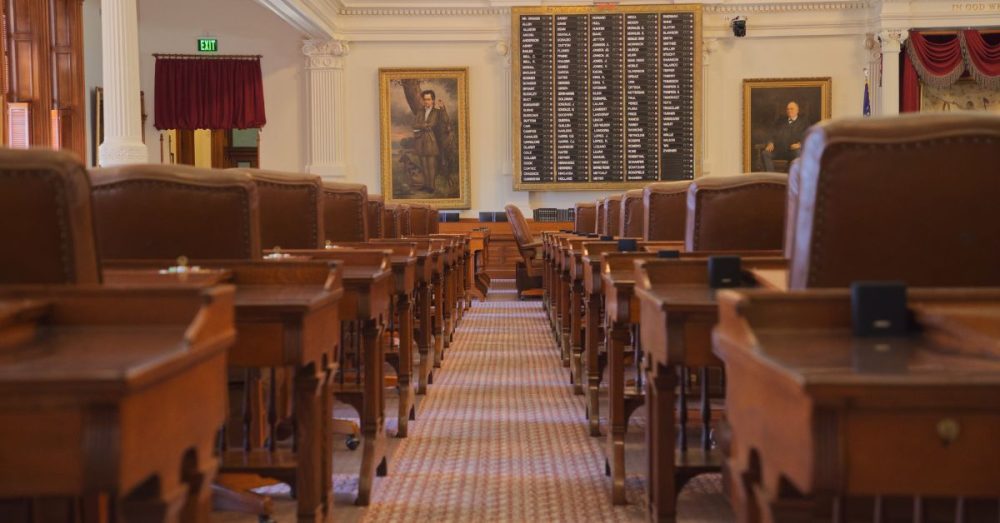(Texas Scorecard) – Texas Senators passed legislation ending “shared governance” with university faculty senates in Texas’ public higher education institutions on Wednesday.
In state universities, “shared governance” is a term where the boards of regents of universities share power with the faculty, who are represented by a faculty senate—or, in the case of the University of Texas-Austin, the faculty council.
Regents are accountable to Texans through the governor’s office and the state senate. Members of the faculty senate enjoy no such accountability.
State Sen. Brandon Creighton’s (R-Conroe) proposed measure defines the role of faculty senates as advisory only.
Creighton argued that faculty senates working with university administration have operated unchecked due to a lack of clearly defined roles.
Also known as Senate Bill 37, the legislation passed along party lines in a vote of 20-11. In its current form, the measure would limit the decision-making power of faculty senates to strictly advisory roles and establish strict guidelines for their composition, meetings, and online transparency.
“For too long, unelected faculty senates have operated behind closed doors, steering curriculum decisions, influencing institutional policy, issuing political statements to divest from Israel, and even organizing votes of ‘no confidence’ that undermine public trust,” said Creighton.
SB 37 reaffirms that the authority belongs to the Board of Regents so that our universities can stay focused on what matters: educating students, conducting research, and preparing the next generation of Texas leaders.
It also grants boards of regents increased oversight, including the ability to overturn administrative decisions and require annual reports on institutional activities.
SB 37 mandates a comprehensive review of general education curricula and degree programs every five years, ensuring they align with workforce demands, promote civic engagement, and adhere to accreditation standards. It also restricts content that could promote racial or ideological bias, emphasizing a balanced and fact-based approach to education.
An Office of the Ombudsman within the Higher Education Coordinating Board would mediate disputes and enforce compliance with the new standards.
Upon passage, Lt. Gov. Dan Patrick explained he prioritized SB 37 because “Faculty senates must have a clearly defined role at our universities.”
“While the rogue faculty senate at the University of Texas foolishly questioned the Texas Legislature’s authority over higher education, faculty senates generally serve a purpose and help Boards of Regents make critical decisions impacting university students in Texas,” said Patrick.
The legislation now moves to the Texas House, where, if passed, it would head to the governor’s office. If it becomes law, it would take effect in September.


